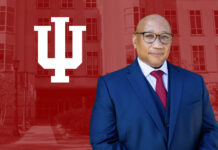 A study by scholars at Indiana University finds that faculty members at historically Black colleges and universities are more likely than their peers at predominately White institutions to engage in “educationally purposeful” activities both in and outside the classroom.
A study by scholars at Indiana University finds that faculty members at historically Black colleges and universities are more likely than their peers at predominately White institutions to engage in “educationally purposeful” activities both in and outside the classroom.
Lead author Tom Nelson Laird stated, “Compared to their counterparts at the PWIs in this study, faculty at HBCUs viewed their campuses as more supportive of students, used active classroom practices more, placed greater importance on reflective learning, and placed greater emphasis on personal and social responsibility.”
HBCUs frequently state that they offer a nurturing environment where Black students can excel and where they do not have to be concerned with bias from other students or faculty.
Professor Nelson Laird states that his study “supports the idea that there is something particularly supportive about HBCUs. It likely has more to do with their approach to teaching and support and is not all about students relationships with others on campus.”











As an African American faculty member at a “TWI” I can tell you that my support of Students of Color (Blacks and all others) does not get rewarded. Due to my out of class efforts my publication record is not what it should be. Frequently I am not only supporting students but acting as a liaison and mediator for many of my colleagues (Whites and Blacks alike) who offer little help but are quick to criticize any efforts from these students. I must say, their publication and research records are better than mine, but their skill sets are no greater. It is no wonder that the graduation rate for Blacks is often lower. I am tired, but I know that if I do not help these students our graduation rate for Blacks, here at “Major Research University,” would be much lower.
Professor Anonymous,
Your story is a very common one. In addition to lack of support for underrepresented students, I suspect that your institution has little support for underrepresented faculty. Otherwise, there would be mechanisms in place to insure that you have time to publish and that senior faculty do some of the heavy lifting in terms of student support. As a former Chair, I can tell you that this is absolutely necessary to keep underrepresented faculty on board. You are not being selfish if you say “no” to certain requests. A good Chair would be supportive of you doing so.
By focusing on your teaching and research, and being excellent at both, you are also providing a form of support to the students. Excellent teaching means your courses will remain in demand. Because of your excellent research, students will seek you out.
I would also suggest that you be strategic and selective about your efforts. Rather than responding to countless demands on your time, make sure you are at the table in one or two key contexts that have the most dramatic impact on underrepresented students: admissions, enrollment management, search committees, etc.
Not suprised. Just to point out, the title says “HBCU Faculty” not “African-American Faculty” meaning all faculty regardless of ethnic background is more supportive. And that is absolutely the case! Thank God I went to an HBCU! Go Va. State U.!
I attending an HBCU as an undergrad and now as faculty I give my students of ethnicites that type of support but I concur, that type of service is not supported. I am at a great institution but if a job opening comes at an HBCU near my family down south, I am applying. I have been given my opportunity because of Black people, thus I must serve them to the fullest. That is real to me as a son, father, frat brother, black man etc.
Yes, but my sense is that the “African American” is at least implied to a certain extent. Having said this, I agree with Prof. Anonymous that mentoring and support of students of color and young women is not appreciated, though it is absolutely necessary for their success…
I attended two elite PWIs that were private and one HBCU. The HBCU by far gave me the most confidence and support, but I was fortunate to have two black advisors at the PWI in which I studied….
In the end, the only thing that PWIs respect is research that is published…and published in particular venues. Yet, I continue to do what I think is best for my students and for my career, not simply what will endear me to the PWI where I teach…